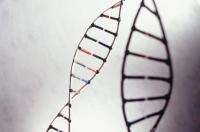Sequencing project will map DNA of up to 100,000 patients

A new £100m project will map the DNA of up to 100,000 patients with cancer and other rare diseases.
The large-scale mapping initiative will take place in England over the next three to five years and is intended to lay the foundations for a revolution in NHS treatment.
The genetic data will help researchers to develop new drugs and tests that could help save thousands of lives.
Britain should "push the boundaries" and become the first country to introduce genetic sequencing to its mainstream health service, according to the prime minister David Cameron.
He said: "Britain has often led the world in scientific breakthroughs and medical innovations, from the first CT scan and test-tube baby through to decoding DNA. By unlocking the power of DNA data, the NHS will lead the global race for better tests, better drugs and above all better care.We are turning an important scientific breakthrough into a potentially life-saving reality for NHS patients across the country."
He added: "If we get this right, we could transform how we diagnose and treat our most complex diseases not only here but across the world, while enabling our best scientists to discover the next wonder drug or breakthrough technology."
Dr Harpal Kumar, Cancer Research UK's chief executive, welcomed the plans: "This work will uncover a wealth of new information which doctors and scientists will use to learn more about the biology of the disease and to develop new ways to prevent, diagnose and effectively treat cancer.
"We're very excited about personalised medicine - some targeted treatments, such as imatinib, a drug for chronic myeloid leukaemia are already helping to treat patients more effectively - and we're working hard, with many others - to develop new treatments, and to ensure the NHS can effectively deliver a more personalised cancer treatment service."
He added: "We hope that this vital investment, together with other measures, such as continued support to diagnose cancers earlier, when treatment is more likely to be successful, will be an important step towards saving more lives from cancer, sooner.
"But, it will be some time before everyone with the disease will be able to have treatment based on the genetic make-up of their cancer."
The NHS already analyses single genes in cancer tests to determine the chances of particular patients having side-effects from treatment.
Professor Dame Sally Davies, the government's chief medical officer, explained: "At the moment, these tests focus on diseases caused by changes in a single gene.
"This funding opens up the possibility of being able to look at the three billion DNA pieces in each of us so we can get a greater understanding of the complex relationship between our genes and lifestyle."
The £100m earmarked from the project, which stems from existing NHS budgets, will be spent on training genetic scientists, mapping patients's DNA, and creating systems for handling the information.
The Human Genome Project, which made an initial 'rough draft' of the human genetic sequence in 2011, cost approximately £500m.
But technological advances have cut costs dramatically, meaning the procedure can now be performed for under £1,000 per person, and officials believe the new £100m DNA mapping investment could reduce prices further still.
All patients will be asked for permission before their DNA is sequenced, with all subsequent data anonymised before it is stored.
Alongside the DNA mapping announcement, the government also allocated £100m of new science funding in the Autumn Statement to the life sciences sector.
The money will help build research capabilities for synthetic biology, facilities for manufacturing cell and biological medicines such as antibodies and vaccines.
Science minister David Willetts said: "Life sciences is one of the most truly international sectors - so if we are to continue to be a world player and compete in the global race we must do everything we can to support it.
"In the past year, our initiatives have attracted more than £1 billion of private sector investment to the UK. We can see clear evidence the UK is succeeding in creating the right environment to attract global investment to our shores and continue to be world leader in life sciences."
















